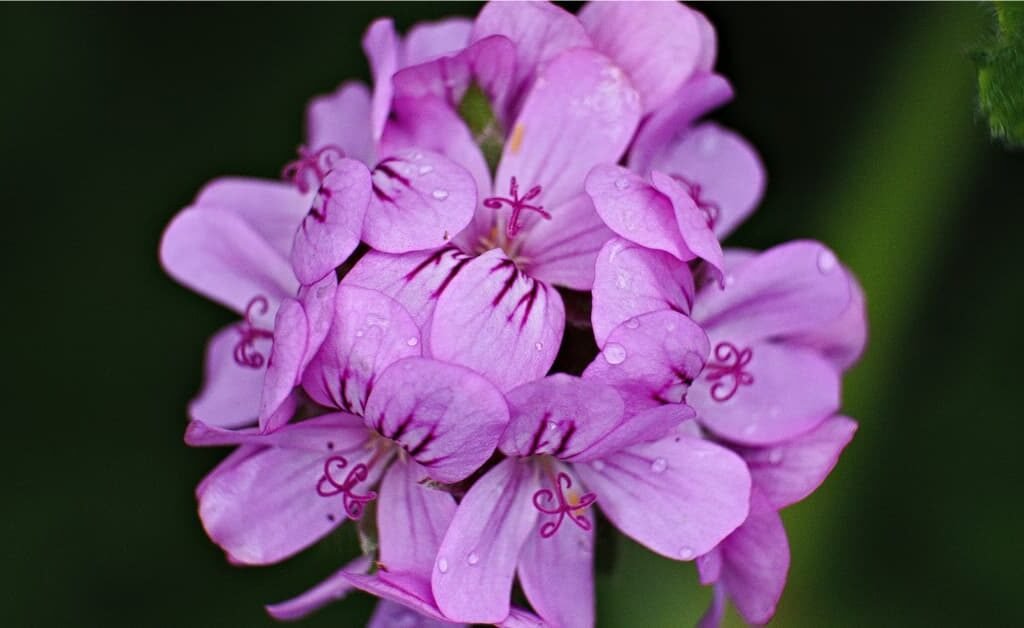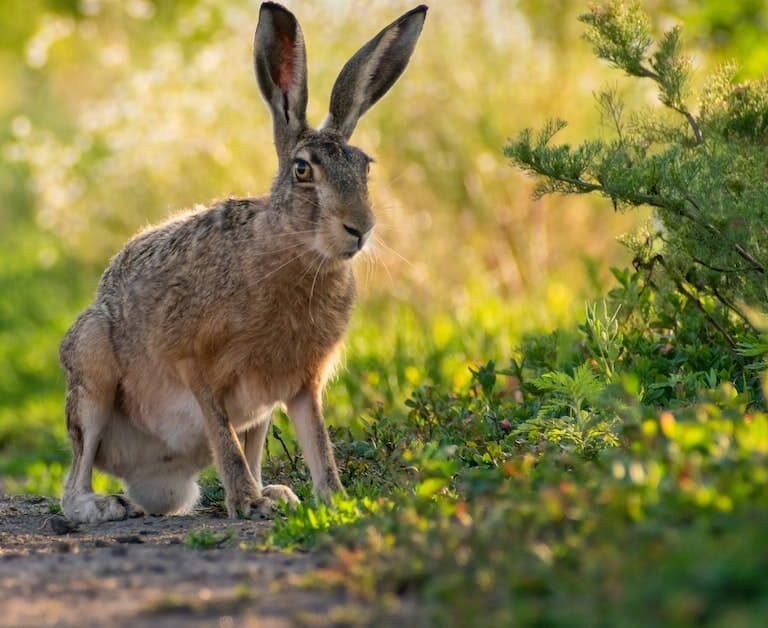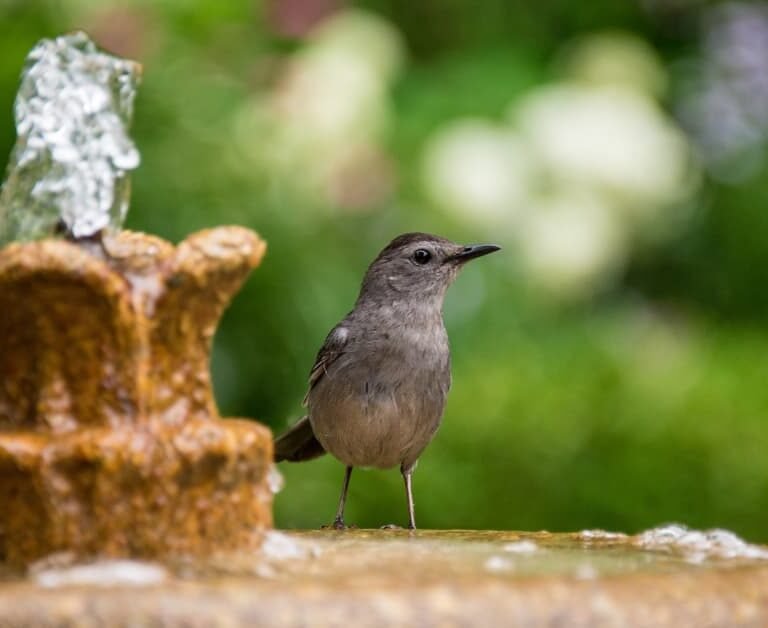
Are you a garden enthusiast curious about whether deer find your beautiful geraniums as appealing as you do? Understanding the eating habits of these graceful wildlife visitors can save your plants from becoming an unintended feast.
In this blog post, we’ll delve into the enigmatic world of deer diets, explore their relationship with geraniums, and reveal methods to protect your cherished flowers from potential harm.
Short Summary
- While geraniums are not usually at the top of a deer’s preferred food list, they may still be susceptible to damage in certain circumstances.
- Physical barriers like fencing and netting, planting other deer-resistant plants nearby, and using natural or chemical repellents can all help protect geraniums from potential harm caused by wildlife.
- Deer have a voracious appetite and can feast on various vegetation, including grass, shrubs, leaves from trees, and flowers. It is essential for homeowners to understand their eating habits to safeguard their beloved garden and all its plants.
Geraniums And Deer: A Clash Of Interests
Deer and geraniums share a conflict of interests, as deer have a tendency to nibble on plants, leaving gardeners worried about the safety of their beloved flowers.
Exploring Deer’s Eating Habits
As a homeowner, understanding deer’s eating habits is essential for safeguarding your beloved garden and all its plants. Deer are notorious for their voracious appetite, feasting on a wide range of vegetation, including grass, shrubs, leaves from trees, and flowers.
While it’s true that deer don’t typically consume geraniums as part of their standard diet (they are considered more deer resistant than other flowering plants), it’s important not to rule out the possibility entirely.
In less-than-ideal circumstances where food sources are scarce or when other preferred options aren’t readily available – like luscious lantana or enticing impatiens – even these unappetizing blooms may appeal to desperate deer trying to satisfy their nutritional needs.
Determining If Geraniums Are On Their Preferred List
Deer are known to have a preference for certain types of plants, but do geraniums make the cut? While geraniums are not usually at the top of a deer’s preferred food list, they may still be susceptible to damage in certain circumstances.
Deer will often eat anything if they feel threatened or if there is limited food available. However, by planting other deer-resistant flowers around your geraniums and using natural or chemical repellents, you can greatly reduce the chance of damage occurring.
Some examples of other flowering plants that deer typically avoid include lantana and impatiens.
Protecting Your Geraniums From Deer
You can safeguard your beautiful geraniums from pesky deer by using physical barriers, planting other deer-resistant plants nearby, and applying natural or chemical repellents.
Using Physical Barriers Such As Fencing And Netting
As a homeowner, I know firsthand how frustrating it can be to see your beloved geraniums damaged by wildlife. Here are some physical barriers you can use to protect them:
- Install a tall fence around your garden: A six-foot-tall fence made of sturdy material such as wood or metal can deter deer from entering your garden.
- Use netting to cover individual plants: Netting can be draped over the top of individual plants and secured in place with stakes to prevent deer from reaching the foliage.
- Place chicken wire around your garden beds: Attaching chicken wire around the perimeter of your garden bed can create an effective barrier for keeping deer out.
- Create a raised bed: Building a raised bed for your geraniums will make it harder for deer to reach them.
Remember to regularly check the physical barriers you have in place, ensuring they stay secure and in good condition. By using these methods, you can enjoy beautiful geraniums in your garden without having to worry about any damage caused by wild animals.
Choosing Deer-resistant Plants To Plant Nearby
As a homeowner who loves to garden, protecting your plants from deer damage is crucial. Here are some helpful tips for choosing deer-resistant plants to plant nearby:
- Select plants that have a strong scent or are prickly, such as lavender, rosemary, and thorny bushes like barberry or holly.
- Consider planting bulbs such as daffodils and alliums which are not appealing to deer.
- Choose tall grasses like switchgrass and big bluestem which will provide an attractive barrier that deer cannot easily navigate.
- Opt for perennials with tough leaves and scents, such as yarrow, salvia, or catmint.
- You can also try planting flowering shrubs like butterfly bush and potentilla that produce an abundance of blooms throughout the summer months.
Remember that no plant is completely safe from a hungry deer, but these options will make it difficult for them to feed on your garden endlessly. With proper planning and care, you can enjoy a beautiful garden without worrying about unwanted visits from wildlife.
Using Natural And Chemical Deer Repellents
As a homeowner, I know how frustrating it can be to watch as deer damage your beloved geraniums. Fortunately, there are both natural and chemical options available to deter these animals from feasting on your plants. Here are some options to consider:
- Natural Repellents:
- Use scented soaps: Deer find the scent of Irish Spring soap repellent, so hang it around your garden.
- Install motion-sensor water sprayers: A sudden spray of water can scare away deer.
- Use human or dog hair: Sprinkle human or dog hair in the garden bed.
- Plant herbs: Herbs like mint and oregano have a strong scent that deters deer.
- Chemical Repellents:
- Use commercial deer repellent spray: These sprays contain ingredients like putrescent eggs, garlic oil, and capsaicin which deter deer from approaching plants.
- Use predator urine: Spraying coyote or bobcat urine in your garden is another option.
- Install electronic devices: Electronic devices emit high-frequency sounds that repel deer.
By using natural and chemical deterrents, you can keep your geraniums safe from being eaten by pesky deer while still enjoying the beauty of your garden.
Conclusion: Keep Your Geraniums Safe And Beautiful
By utilizing physical barriers, choosing deer-resistant plants, and using natural or chemical repellents, you can protect your beautiful geraniums from deer damage.
With Proper Protection, You Can Enjoy The Beauty Of Geraniums In Your Garden Without Worrying About Deer Damage.
As a homeowner, it’s important to safeguard your garden from deer damage. Fortunately, there are various methods you can use to protect your geraniums and other flowering plants.
One option is using physical barriers such as fencing and netting to prevent deer from accessing your garden altogether. Additionally, planting deer-resistant plants nearby will distract them from your geraniums.
Natural and chemical repellents like predator urine or motion-activated sprinklers can also be used as a deterrent for curious deer.
FAQs:
1. Are geraniums a preferred food source for deer?
Geraniums are not generally considered one of the top food choices for deer, but they may still eat them if other more desirable options are scarce or unavailable in their habitat.
2. How can I prevent deer from eating my geraniums?
To prevent deer from eating your geraniums, you can install various forms of physical barriers around your garden beds or use deterrent sprays that contain natural repellents like peppermint oil and garlic. You may also want to consider planting other types of plants that are known to be less attractive to deer in close proximity.
3. Can deer cause permanent damage to my geraniums if they do eat them?
It depends on how much of the plant is consumed and how frequently it happens over time. If a significant amount of foliage is eaten repeatedly, it could eventually weaken the plant’s overall health and make it more susceptible to disease or pest infestations.
4. Is there evidence that certain varieties of geraniums attract deer more than others?
Some studies suggest that certain colors or scents associated with specific varieties of geraniums may make them slightly more appealing to some species of wildlife including deer. However, this isn’t necessarily a broad generalization across all types and many factors influence an animal’s feeding habits beyond just color or scent alone.




